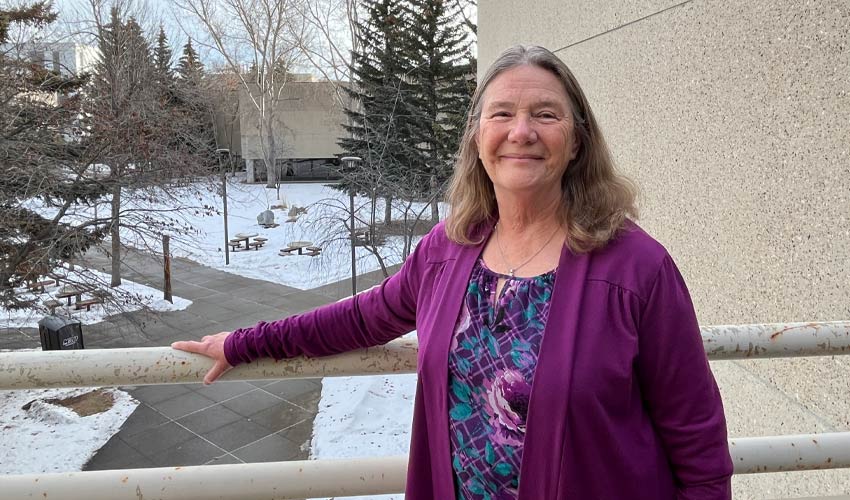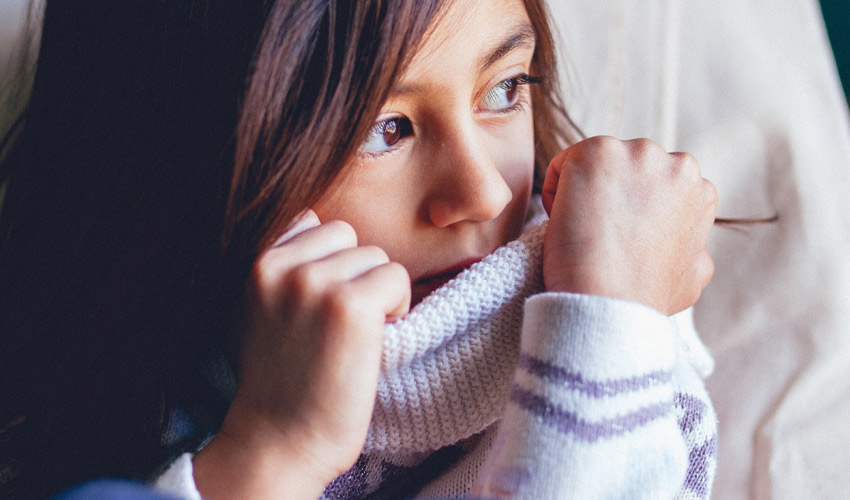Online training helps children exposed to domestic violence
MRU professor emerita helps develop The Healing Brain
— Mount Royal University | Posted: January 17, 2023

Dr. Dawne Clark, PhD, worked with the Alberta Council of Women’s Shelters to develop The Healing Brain.
More than two-thirds of those admitted to domestic violence shelters in Alberta are children who are accompanying mothers fleeing violence and abuse. An online training program developed by The Alberta Council of Women’s Shelters (ACWS), with help from a Mount Royal University professor emerita, is giving workers who assist those children the tools they need for better outcomes.
The Healing Brain is a module-based course on early childhood brain development, the impacts of trauma on children and how to nurture resilience in children dealing with domestic violence. ACWS unveiled the program in the fall as part of its new Learning Management System (LMS) and its first online training program. The LMS enables shelter workers from across the province, especially those in more remote locations, to access various training opportunities more easily.
In the 2021/22 fiscal year, 3,373 children were sheltered in ACWS member emergency and second-stage shelters in the province. Shelters offer a continuum of supports that include on-site child care and playrooms.
“Working with children who have been exposed to domestic violence is one of the major prevention tactics that can be used to interrupt the cycle of violence from continuing into future generations,” says Mel Willerth, ACWS program development and training coordinator.
The ‘silent pandemic’
Mount Royal University Professor Emerita Dawne Clark, PhD, (child studies) has been working with ACWS since 2010, helping to develop curriculum for those who work with young children in shelters. For several years, she offered face-to-face, two-day workshops on early brain development, the impacts of adverse childhood experiences and trauma on the developing brain and body, and the role shelter workers have in enhancing children's resilience.
“The Healing Brain was a great collaboration where I updated and revised the in-person workshop into a fully interactive online course,” Clark says.
“Domestic violence has long been identified as the silent pandemic, and isolation during the COVID-19 pandemic increased exposure and risk for women and children. The Healing Brain contributes to helping shelter professionals understand the impacts of trauma on brain development and the importance of focusing on practices that promote wellness and resilience,” says Dr. Gaye Warthe, PhD, associate professor of child studies, associate dean, teaching and learning at MRU, and president of the board of directors, Alberta Council of Women’s Shelters.
“A web-based platform ensures access for professionals across the province and helps to further develop an essential workforce seldom recognized and acknowledged for their role in supporting families.”
The Healing Brain curriculum was made possible by a donation from IODE Alberta. The course will be free to the general public for the first two months, after which there may be a nominal fee, and will remain free for ACWS members. ACWS is currently looking for funding partners to offer future courses and welcomes inquiries from interested parties.

In the 2021/22 fiscal year, 3,373 children were sheltered in ACWS member emergency and second-stage shelters in the province.
“Canadian society has, by and large, believed that children are naturally resilient, that when they are very young they don't know or understand the trauma around them, or that they will simply 'bounce back'. However, over the past 20 or 30 years, neuroscience has provided clear evidence that young children are, indeed, impacted by trauma during their early years,” Clark says.
“If those who work with young children understand the impact of trauma on those in their care, they are able to provide meaningful experiences and relationships to help the children heal.”
While she was a full-time faculty member at MRU, Clark took part in a five-year project by the Alberta Family Wellness Initiative called Early Brain and Biological Development (EBBD) that helped inform The Healing Brain, and which is also directly linked to the Truth and Reconciliation Commission’s Calls to Action. EBBD adapted for Alberta what is called the Core Story, developed at Harvard’s Center on the Developing Brain.
Many young children are unable to articulate what they have experienced. The Core Story is a series of metaphors that make complex neurological concepts easier to understand and explain to others. The visual metaphors include serve and return, building a brain is like building a house, toxic stress and air traffic control. The metaphors help those working with young children understand how damaging living in a home with domestic violence can be (toxic stress), how to provide the required nurturing relationships (serve and return) and experiences that build healthy brains and bodies (building a brain and air traffic control).
“When shelter workers understand the Core Story and learn ways to enhance children's resilience through providing a safe, warm, welcoming play space, it may be possible to reduce the impact of toxic stress and help break the cycle of violence early in the children's lives.”
Read more about the Bachelor of Child Studies at MRU.

